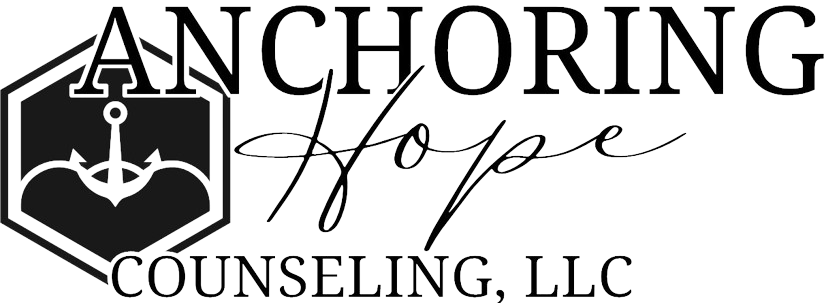Some signs that you might be experiencing anxiety include feeling uneasy, fearful, or excessively worrying. These feelings are common, especially if you’re facing a big event or project. Anxiety can bring not only mental symptoms but also physical symptoms, making it a complex experience. Remember, you don’t have to manage these feelings alone—speaking with a mental health professional, such as an anxiety counselor or therapist, can provide guidance and support.
Symptoms of Anxiety: What to Look For
Anxiety symptoms vary for each person, and everyone copes differently. Symptoms can be broadly categorized into psychological and physical types, and you may experience both to varying degrees. If you’re considering seeing a therapist for anxiety or are wondering if you have anxiety, here are some common symptoms to look out for:
Psychological symptoms:
Feeling restless or on edge – Constantly feeling tense or "wired."
Difficulty with focusing – Anxiety can make it challenging to concentrate or complete tasks.
Persistent feelings of worry or unease – Worrying over many things, even small or unlikely events.
Irritability – Feeling unusually short-tempered or easily frustrated.
Overthinking – Spending too much time analyzing situations or replaying events in your mind.
Struggling to let go of worries – Finding it hard to stop worrying, even if you want to.
Physical symptoms:
Fast heart rate – Your heart may race as your body responds to stress.
Rapid breathing – You might find yourself breathing faster, sometimes leading to shortness of breath.
Tense muscles/headaches – Anxiety can cause muscles to tighten, leading to aches or headaches.
High blood pressure – Physical stress responses can increase your blood pressure temporarily.
Gastrointestinal issues – Anxiety can affect your digestive system, causing nausea, stomachaches, or other issues.
Sweating/trembling – You may notice sweaty palms, trembling, or a general feeling of shakiness.
If you’ve been experiencing any of these symptoms, seeking anxiety counseling may be a helpful next step. Therapy can provide tools and techniques for managing these physical and mental signs of anxiety.
How to Cope with Anxiety: Techniques Used in Therapy
Learning to cope with anxiety is a key step toward managing it. While there is no one "correct" way to cope, each person finds different techniques helpful. Many anxiety counseling sessions focus on helping clients explore these strategies, providing a roadmap to find what works best. Exploring coping techniques online or through an anxiety counselor can be a great start. If you find one method isn’t working for you, don’t be discouraged; an anxiety therapist can work with you to discover other approaches. Reaching out to a mental health professional is one of the most effective ways to navigate anxiety, and we encourage you to connect with therapists who can offer personalized support.
Effective Coping Strategies for Anxiety Relief
Here are some commonly recommended anxiety management techniques, often taught in counseling sessions:
The 3-3-3 Rule – Identify three things you can see, three sounds you can hear, and move three parts of your body (such as your fingers, arms, and legs). This exercise grounds you in the present moment, helping to break the cycle of racing thoughts and promote mindfulness.
Meditation – Practicing meditation can calm the mind and reduce anxiety by focusing your attention on breathing or a particular word or phrase, leading to a relaxed state that counters stress responses.
The 4-7-8 Rule – Inhale for four seconds, hold the breath for seven seconds, and exhale for eight seconds. This breathing technique helps slow your heart rate, encouraging a sense of calm by activating the body's natural relaxation response.
Establish a Routine – A consistent daily routine can provide stability, making it easier to manage anxiety. Knowing what to expect each day helps reduce uncertainty and can provide a sense of control over your life.
Limit Caffeine Intake – Caffeine can increase heart rate and jitteriness, which can amplify feelings of anxiety. Reducing caffeine helps to avoid these physical symptoms that may otherwise exacerbate anxious feelings.
Learn Your Triggers and Avoid Them – Identifying what situations or experiences trigger anxiety allows you to prepare for them or avoid them when possible, reducing unexpected stress.
Try Exposure Therapy – While avoiding triggers can sometimes be helpful, there are situations where working through fears is necessary to move forward. Exposure therapy allows you to gradually and safely face these fears, building resilience and strengthening your ability to manage challenging moments.
Cognitive Behavioral Therapy (CBT) – CBT focuses on understanding and changing patterns of thinking that contribute to anxiety. It’s a highly effective treatment offered by licensed therapists, providing practical tools for reframing thoughts and managing anxiety.
Journal Your Thoughts and Feelings – Writing down your thoughts and feelings allows you to release pent-up emotions and gain insights into your anxiety triggers. Journaling can also be a helpful way to track progress over time.
Do Things You Enjoy – Engaging in activities you enjoy can provide a healthy distraction from anxiety and boost mood. Doing things you love reinforces positive feelings, helping to balance the negativity that anxiety may bring.
Implementing these strategies can create a toolkit to help you manage anxiety, both during moments of stress and over the long term. If you’re interested in more structured support, connecting with a therapist or counselor specializing in anxiety can offer deeper insights and effective tools. Remember, finding what works best for you may take time, but every step you take brings you closer to greater peace and well-being.
If a therapist isn’t your jam, Anchoring Hope is bringing some cool options your way!
On Saturday November 16th at 6pm, our Wise, VA Office will be offering an anxiety-focused workshop reviewing these techniques and more!
OR, if you don’t really care for peopling, you can always download our app! Search your Apple Store for “Anchoring Hope” to gain access to several counselor-approved coping skills! Google users can also access the app by downloading the Passion.io app and searching for “Anchoring Hope”! Reach out if you need help to stephanie@ahchope.com .
Also, this blog was written by Hope Hall & Edited by Stephanie Strouth. Stephanie just couldn’t figure out how to add Hope as an author to the account because the process is unnecessarily complicated.














